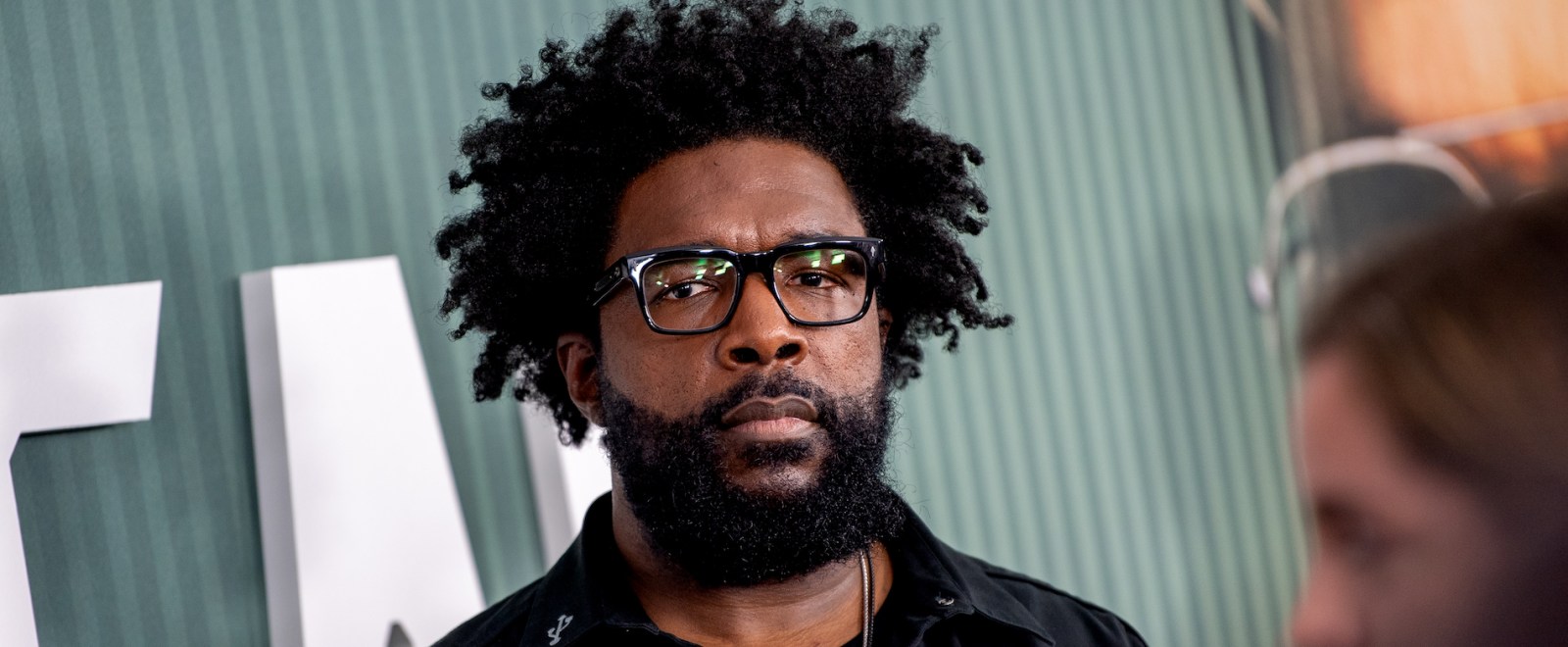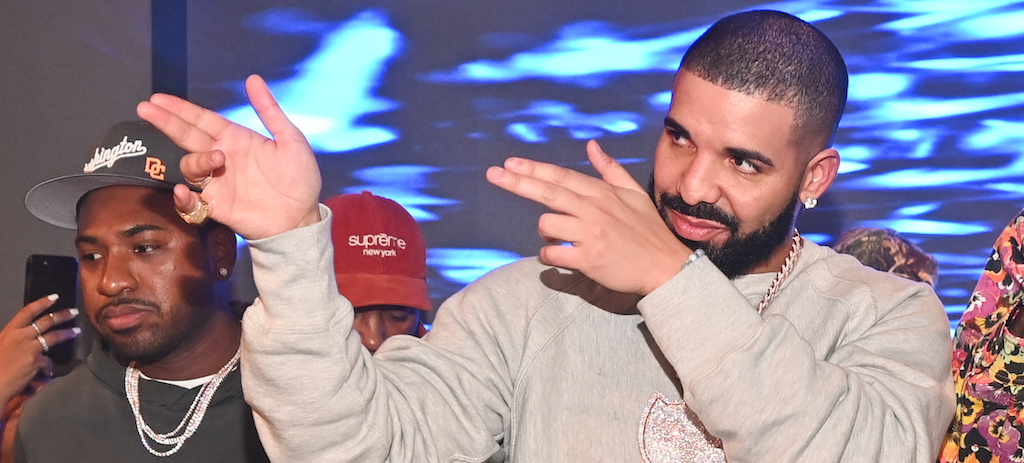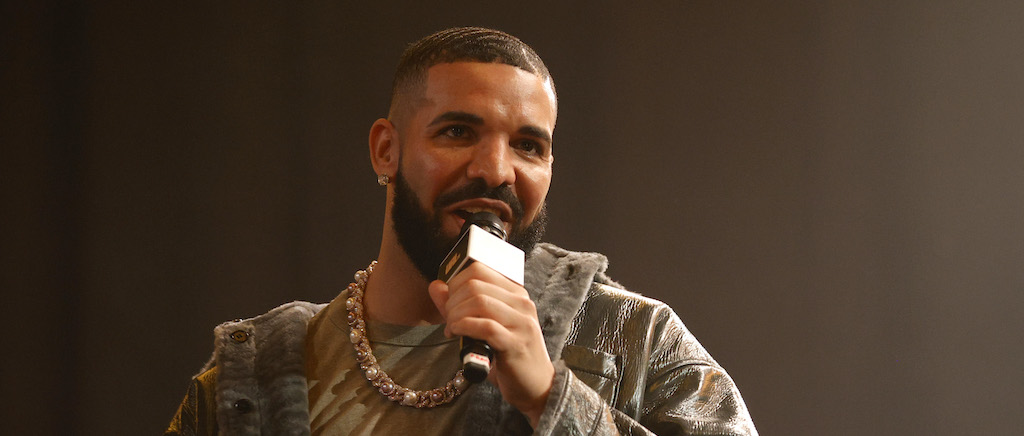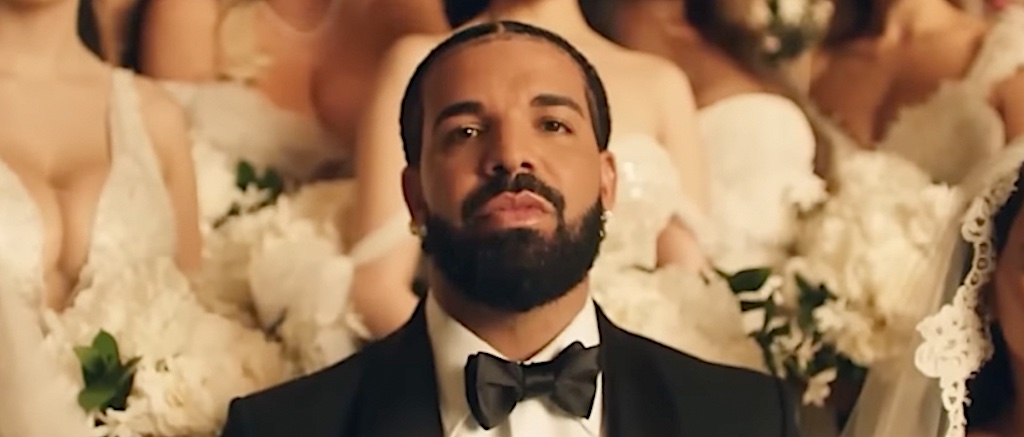
Drake is a master of throwing curveballs. The now-35-year-old rapper has been juking fans’ expectations since he arrived on the scene as an aspiring artist back when he was still just a cast member on a cable teen soap opera. Heck, his very existence as THEE superstar rapper of the past decade defiantly flouts rap conventions. You probably already know the spiel at this point and have probably long since chosen your position on whether this is a boon or blasphemy.
With his new surprise album Honestly, Nevermind, Drake may have thrown the biggest curve of his career yet. Fans have never expected hardbody rhymes from The Boy, but they could at least rely on receiving a collection of sad boy anthems and passive-aggressive caption raps with each new Drake project. Instead, many were utterly flabbergasted to press play on a compilation of dance tracks inspired by late fashion designer and DJ, Virgil Abloh, showcasing a global palette of mainly South African-originated house styles like gqom (the “gq” is pronounced as a click in isiZulu, one of the nation’s 14 official languages) and amapiano.
As for me, I was delighted. For the past three years, I have been predicting a wave of Black artists making a pilgrimage to dance music, including such pioneers as Channel Tres, Duckwrth, and even Vince Staples (Big Fish Theory was right there). That Drake – who has always cottoned on to international subcultures as both an extension of his eclectic tastes and savvy stylistic evolution – is the one to lead the charge is deliciously fitting. Just look at the mainstream relevance of UK drill music and its New York-based offshoots in the wake of Drake’s 2019 collaboration with Headie One. Before that, it was Nigerian Afropop, UK grime, and way, way back, you may recall, the house-inflected title track from his sophomore album, Take Care.
Not only does Drake’s embrace of house music on his latest represent a full-circle moment for him but it is also one for the genre itself. Over the course of the last several years, there has been a cornucopia of articles on the internet recounting the origins of house and techno music in Black subcultures in cities like Chicago, Detroit, and New York in the 1970s and ‘80s. They’ve highlighted how Black artists and DJs were pushed out of the genres that they created, supplanted with watered-down, whitewashed imitations thanks to an influx of international interest – particularly from Europe, where dance music continues to flourish in a mainstream context compared to the US where it’s still considered niche or passé (classifications of Honestly, Nevermind as mall music abound on Twitter as I write this).
But also over the past few years, due partially to the keen interest in reclaiming Black American history that spawned from the uprisings of the past decade, Black artists have shown a greater inclination to break out of the limiting categorizations of so-called “urban” genres. Even more than that, Black artists have taken aim at reclaiming OUR genres – country, rock, pop, punk – and declaring that we do, in fact, belong in the spaces that we had hands – in some cases, the greatest hands – in creating. As Channel Tres told me back in 2019:
“I think a lot of people right now are artists that fit into a category of what you think how they should be. But if you push the conventions, it frees up other kids that are coming after us seeing certain images. It’s hard a lot of times for Black kids to find an image, because we get told what we should be. I just know if I let somebody put me in a box, someone else might not get the freedom to be who they’re supposed to be.”
Likewise, Duckwrth echoed the sentiment of Black belonging in the dance subculture just a year later:
“I think that the reason why house is so big in the white demographic is because it’s very much straightforward. It’s two, three, four, one, two, three, four, and with Black folks, put a little swing in that thing. I feel the original creators of it like Mr. Fingers had a bit more of a soulful flair to it, and then as time went on different people started grabbing it, and then it may have become more simple… I think you can hear the Blackness in the original house.”
This is why Virgil Abloh was so important to the movement to bring the culture and the genre back to their respective centers. He’d DJ at festivals and play house music by Black artists such as Black Coffee, who executive-produced Honestly, Nevermind, opening the door for modern audiences to see and understand our role within the dance genre. And this is why it is so important that it’s Drake, the biggest artist within the one Black genre that has successfully defended itself from a complete takeover of cultural appropriation, who is taking this stride back into the space that Black artists created and were forced to vacate. He’s taking a screwdriver to the door’s hinges, and removing it entirely, ensuring unfettered access to our history.
It’s freeing. It’s giving Black people permission again to take up space – both culturally and literally. It’s telling people to move their bodies. For decades after hip-hop’s creation, movement itself was stifled – especially for men. Just look at Terror Squad’s “Lean Back”; we were all so pre-occupied with being “hard,” with being “gangsta,” we couldn’t move our bodies – the most natural response to music in the world – because we were afraid to look “soft” to be vulnerable, to be corny, to be square. Drake has already absorbed all the disapproval connected to those labels for his entire career. He has already been the butt of the joke. He has nothing left to lose. And because of that, he can be the example that shows that it’s okay not to settle for the small, stifled caricature society has assigned to us as Black men. We can be more.
The best part is, he’ll be far from the only one this summer. Because he’s Drake, the trendsetter, the movement starter, there will be others. And if no one else is willing to take up the cause, Beyonce has already hinted that her upcoming album, Renaissance, will also be heavy on dance and country, another style that Black folks helped to originate before being given the boot. She’s reclaiming that, too, in her own way. Black art won’t be reduced to just one of two musical styles it’s “okay” for us to like. And at first, that may confuse some in the audience, those who have learned to accept society’s limitations and expectations. That’s okay. They have “Jimmy Cooks,” the most traditional rap song on Honestly, Nevermind. Until they’re ready. Until they too, free themselves, loosen up, and learn to reclaim what was always theirs from the start.









 (@HenryTheBlasian)
(@HenryTheBlasian)  (@kirawontmiss)
(@kirawontmiss)  Ares
Ares

